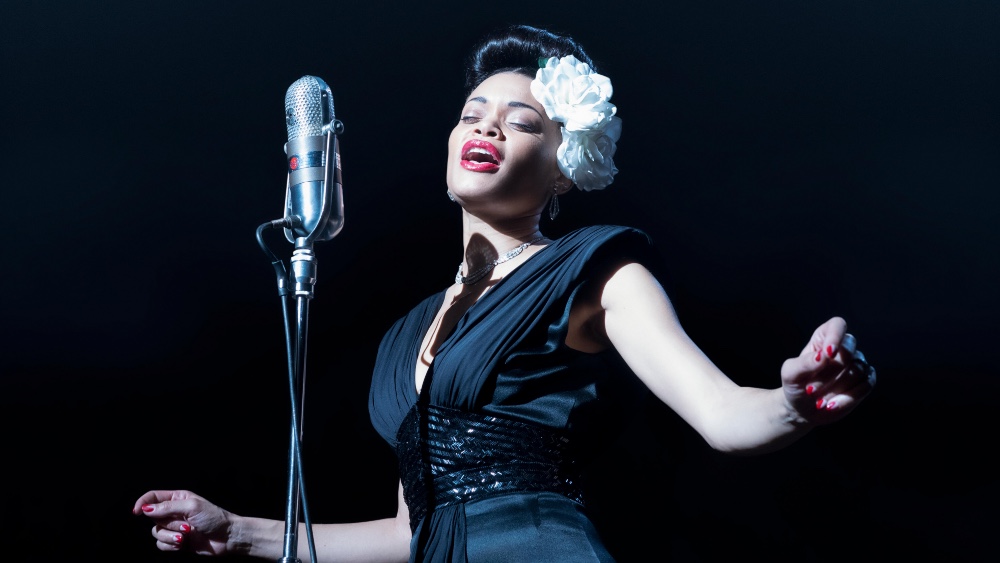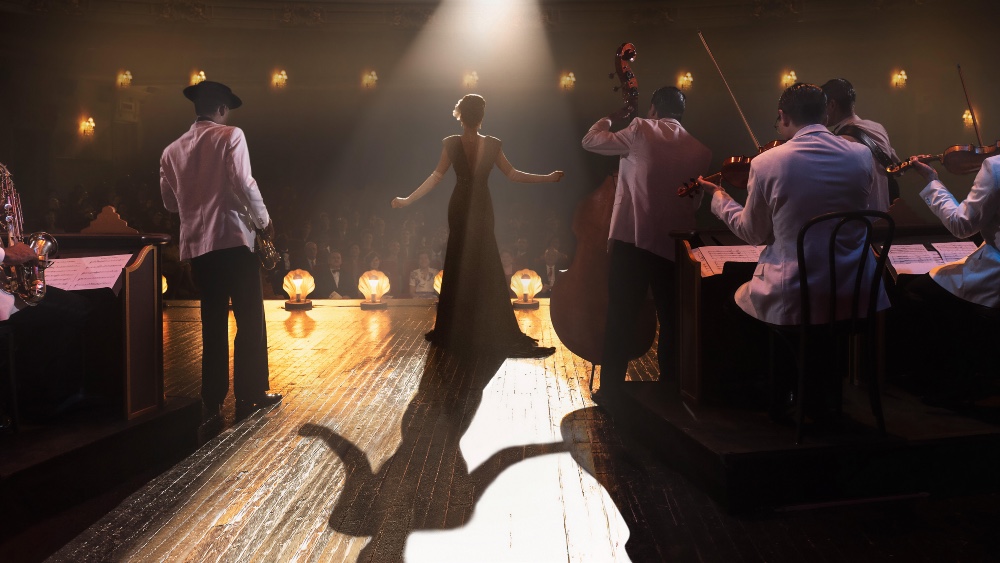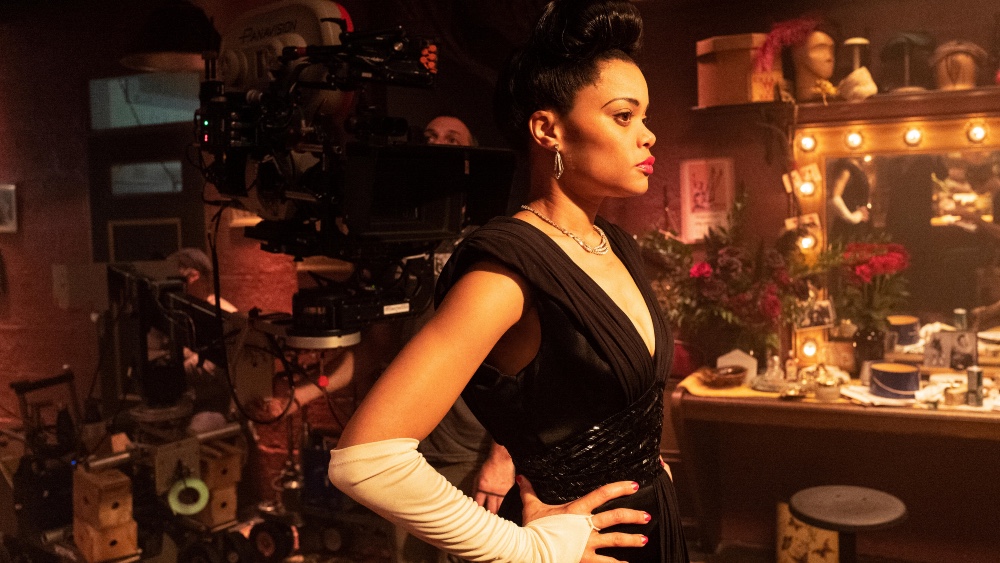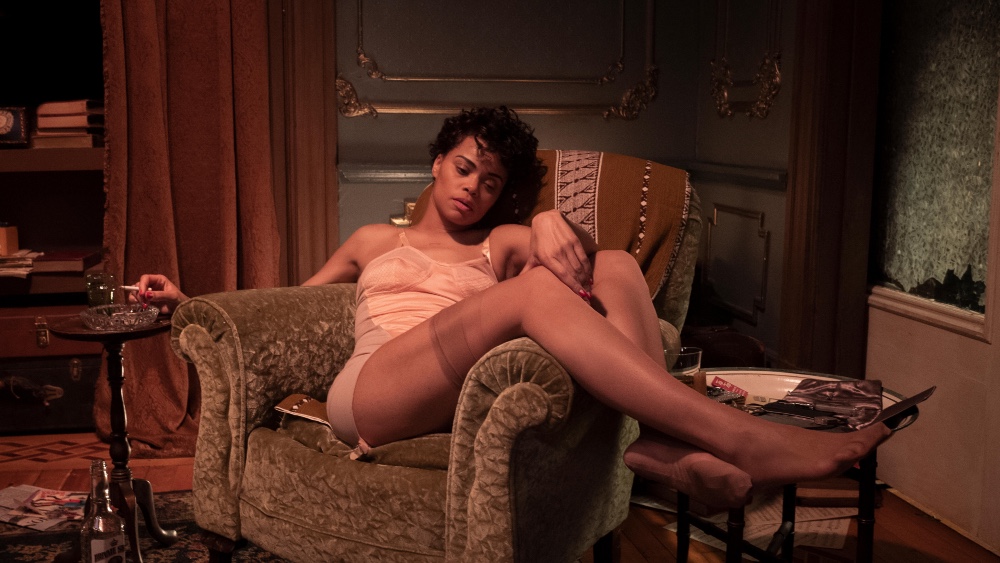
Lee Daniels became a mainstay as a director after his powerful Precious garnered awards attention in 2009. In that film, Daniels told the difficult story about a young girl’s oppression at the hands of a villainous mother, who was herself the product of an evil system of inequality and injustice that has for so long repressed African-Americans in the United States.
In his upcoming film, The United States v. Billie Holiday, Daniels returns to one of Precious’ themes—devastating suffering at the hand of prejudiced tyrants. While the film is thus not as thematically original, The United States v. Billie Holiday is nonetheless a testament to Daniels’ ability to convincingly recount a heart-wrenching tale of affliction and unfairness. This achievement is due, for the most part, to a stunning, no-holds barred performance by singer, songwriter Andra Day as the lead character.

When the film opens, Day’s character Eleanora Fagan (known by her stage name “Billie Holiday”) is recounting the story of her life to a comical if sleazy radio show host played by iconic comedian Leslie Jordan. It is the late ‘50s, but Holiday’s story begins decades earlier, when she rose to fame as a jazz singer persecuted by the local and federal law enforcement authorities. Though the investigation into Holiday purportedly focuses on drugs (the singer is in fact addicted to heroin), the real reason is the popularity she gained thanks to her hit song, “Strange Fruit.” Holiday sang this song, decrying lynching and other forms of violence against African Americans, in New York’s iconic cabaret “Café Society” among other places, to the delight of audiences and the chagrin of those devoted to maintaining the status quo.
Holiday’s fame rises as fast as the federal government’s interest in her. For most of the film, G-Man Henry Anslinger, played by an appropriately evil Garret Hedlund, accosts her, determined to make an example out of the singer in the times of Prohibition and anti-drug campaigns. Holiday also develops an increasingly loving but at times turbulent relationship with Jimmy Fletcher (played with his signature charismatic alacrity by Moonlight’s Trevante Rhodes). Fletcher serves both as her emotional sustenance and as an additional source of trouble as the relationship oscillates between codependence and wistful lust. Like today’s pop stars, Holiday in addition surrounds herself by an entourage of supporters, including an eye-patch donning collaborator played by Miss Lawrence, and celebrities of her time, including the chain-smoking and irreverent Tallulah Bankhead (an amusing Natasha Lyonne).
Despite the impressive and colorful cast of character, make no mistake about it—this is Andrea Day’s show and it is fitting, perhaps, that the singer she plays was nicknamed “Lady Day.” Some credit undoubtedly goes to Daniels, who has demonstrated that his probing eye has the power to extract believable pain and anguish from the actors he has asked to play troubled, difficult women (including most notably Mo’Nique in Precious).
The bulk of the recognition still goes to the singer turned actress, though, as she shows herself unafraid to be seen exposed (physically and emotionally) as Holiday writhes under the yolk of different oppressors and descends deeper into addictive, raw chaos. Most admirable is the unyielding determination that Ms. Day embodies Holiday with even as the singer sinks into despair. This trait surely characterized the real Billie Holiday—only resoluteness of a high degree explains her burning desire to continue signing and performing in the face of the abuse wrought against her.
Other elements of The United States v. Billie Holiday work well and coalesce quietly around Ms. Day’s award-worthy performance. Andrew Dunn’s (Crazy, Stupid, Love) cinematography toggles between the bright lights of the nightclubs and the darker, grittier drug den-like rooms in which Holiday spends her lesser moments. This juxtaposition of worlds is also helped by the steady work of Editor Jay Rabinowitz (Boy, Erased) — who for the most part helps create an even tempo from moment of turmoil to moment of calmness. It is also helped by the efforts of sound editor Robert Hein — who permits Ms. Day’s booming, sensual, raspy voice to enrapture the screen audience and the fictional spectators alike. But even the below the line accolades belong to Ms. Day, who composed the award-nominated original song Tigress & Tweed to punctuate the proceedings, and remind us of her musical as well as thespian chops.
The worst thing one can say about The United States v. Billie Holiday is that, with all its unerring suffering, it eventually feels like someone dragging their hands through your guts, crushing your will to feel joy again, to the point of bleakness. While the depiction is likely true to life, Daniels’ penchant for twisting the knife can push some audience members into emotional detachment. And while the naked, honest exposition of pain was shocking but groundbreaking in 2009, it feels threaded and unnecessary here in some of its extreme incarnations.
Still, this is a well-made and memorable picture. The United States v. Billie Holiday is more than just the name of a court case that played testament to one of the many transgressions perpetrated by government. It is more than just a proceeding to remind us that the “system” does not take lightly to affronts, and that powerful interests deeply fear the power of rabble rouses such as an electric jazz singer rallying the victims against the victimizers. It is, from a cinematic perspective, a significant achievement that brings back to the consciousness a story that had but should not have been forgotten, centered around a moving performance that anchors it, one of the best of this year.
United States v. Billie Holiday will stream on Hulu starting February 26, 2021.
All photos courtesy of Hulu.







